We’re so excited to introduce a new origin: Burundi. This is our first venture into Burundi as Red Fox, but we’re bringing an abundance of experience and history as well as new partnership—more on that below.
Offerings include not just spectacular washed coffees but also some of our favorite naturals in the world, with both categories exhibiting a wide range of profiles.
We’ve recently returned from a sourcing trip where we made first selections and explored operations alongside a new partner, Burundi sourcing veteran Jake Smith, from three core partnerships he’s spent years building with. The coffees will start shipping in the coming weeks with arrival starting in late November and rolling into January. The coffees are spectacular with careful attention not just to flavor but to physical specs.
History & Experience
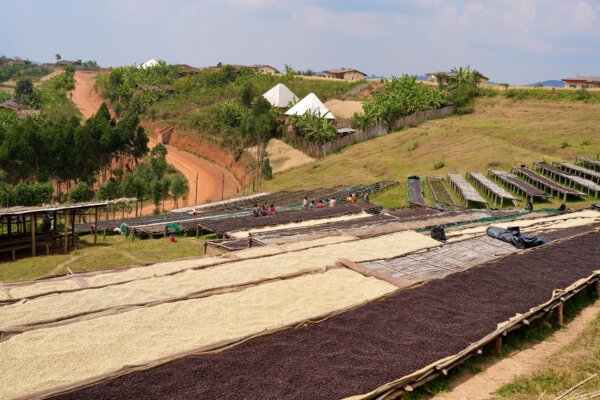 While this is our first time at Red Fox offering Burundian coffees, various team members have deep history with Burundi earlier in their coffee buying years. We’ve also partnered up with Burundi expert Jake Smith, former co-founder of Homage Coffee. He brings a wealth of experience, including relationships from all along the Burundian supply chain. He’s spent over a decade working to bridge the gap between phenomenal producers and the best specialty coffee roasters. We’re joining forces this year, adding our additional value using our own market connections, quality control systems, and logistical expertise to help bring these coffees in and make sure they have ready buyers.
While this is our first time at Red Fox offering Burundian coffees, various team members have deep history with Burundi earlier in their coffee buying years. We’ve also partnered up with Burundi expert Jake Smith, former co-founder of Homage Coffee. He brings a wealth of experience, including relationships from all along the Burundian supply chain. He’s spent over a decade working to bridge the gap between phenomenal producers and the best specialty coffee roasters. We’re joining forces this year, adding our additional value using our own market connections, quality control systems, and logistical expertise to help bring these coffees in and make sure they have ready buyers.
A Challenging Landscape
Burundi is a very difficult country to navigate. It’s one of the poorest countries in the world. That’s both caused by and continues to cause poverty, corruption, hunger, strife, conflict, extreme and long-term fuel shortages, and other systemic factors that make it harder to build relationships of trust where things run smoothly long-term.
For the most part, Burundi’s government adds challenges to the coffee sector rather than helping alleviate them, presenting a heavy bureaucratic burden. Rules change every year for producers, which is difficult in itself even if the changes are sometimes positive. The coffee governing body, ODECA, is not just a regulator but also a producer, creating a very strong conflict of interest. Only producers who produce either extremely high quantity or quality stand a chance at profitability.
Nevertheless, many Burundian producers have continued building stable, secure, and quality-driven operations designed to weather the long haul. With Jake on board bringing experienced, quality-driven partnership that we can trust to help us acquire a superb slate of coffees, we’re excited to bring these in and get them in your roaster.
Regionality & Partnership
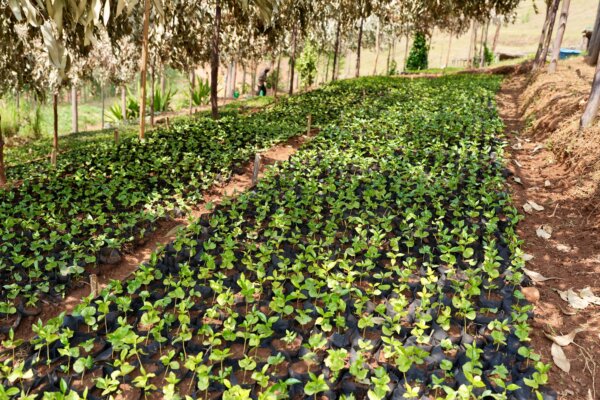 We’re working with three core sourcing partners, each of which bring a unique approach but all of which have built durable, quality-oriented operations. Each are strong, reliable leaders in the sector and in their local communities.
We’re working with three core sourcing partners, each of which bring a unique approach but all of which have built durable, quality-oriented operations. Each are strong, reliable leaders in the sector and in their local communities.
Even with the time Red Fox team members have spent in Burundi in the past, we were still shocked and pleased to see how bespoke each group’s approach to production, processing, and coordination is. Most of the East Africa countries we source from have some amount of top-down regulation that has heavily shaped operations in the coffee sector, but those who have built in Burundi have all built differently. The flavor profiles reflect that diversity of style.
Burundi Specialty Seeds (BSS), Western Kayanza
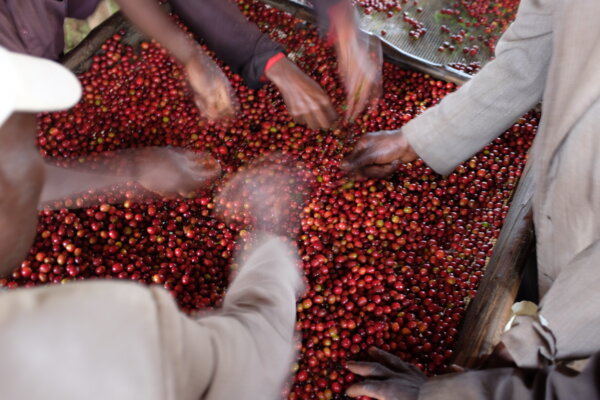 BSS is run by three Burundian producers and veterans of the trade: Picasso Nduwayo, Zephyrin Banzubaze, and Jeremie Nakimuhana. Working with Jake, they’ve developed an innovative coffee production and exporting business model over the last several years in Burundi.
BSS is run by three Burundian producers and veterans of the trade: Picasso Nduwayo, Zephyrin Banzubaze, and Jeremie Nakimuhana. Working with Jake, they’ve developed an innovative coffee production and exporting business model over the last several years in Burundi.
Few Burundian coffee washing station owners also farm coffee at a large scale, but the BSS crew has developed a unique, progressive land-lease model using World Bank funds to rehabilitate fallowed lands and plant over 38,000 coffee trees, producing tons of top-tier specialty coffee. Alongside their own production, they also purchase cherry from surrounding smallholders and act as a communal hub, sharing their extensive experience.
BSS has long produced exceptional natural coffees, but as of 2024 they’ve also gotten their own washing station up and running and added stellar washed coffees into the mix.
These coffees come from soaring altitudes ranging from 1800-2200 meters above sea level, with rich red clay soil. This area is nestled against the huge Kibira National Forest with thick canopies and wetter weather than other Burundian growing areas. You’re already in the “up country,” as locals say, so you’re not seeing major altitude differences when you travel through Kayanza, but you’re already noticeably high. This area is where the former monarchy government’s kings are buried, with massive indigenous trees surrounding their graves.
Profile-wise, these coffees are an immaculate expression of Western Kayanza terroir, with a highly distinct effervescence and clarity of flavor. The washed lots have notes of tropical fruit, passionfruit, raspberry, and lemon cream, with abundant jasmine florality. The naturals are crisp and fresh, not at all boozy or heavy, enhanced by 3-5 days yeast development followed by 25-30 days carefully-tended sun drying. They have notes of blackberry, blueberry, fig, vanilla, Juicy Fruit gum, fresh strawberry, and pink starburst.
Their coffees are separated by hills (“collines” in French) made up of small familial communities, cupped by the day lot then milled and composed with precise traceability.
BSS and Jake continue to work together to develop bonus projects that are available to roaster partners to invest and contribute to. These projects include longer-term efforts to support farmers with manure production, washing station tools, cupping lab, distribution of seedlings to farmers, and more.
Ephrem Sebatigita, Munkaze Washing Station, Kayanza Centre
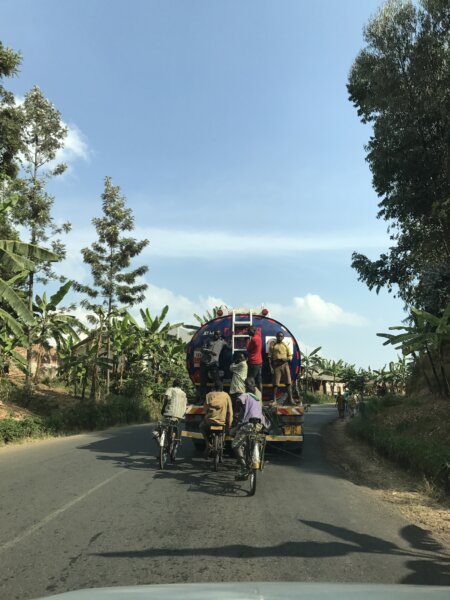 Ephrem Sebatigita runs Munkaze Washing Station in Kayanza Centre. A third-generation coffee farmer, he’s been working in the coffee industry for decades and is often referred to by locals as their “coffee grandfather.” Ephrem has contributed incredible value to Burundi’s supply chain. He’s an electrical engineer by trade and has built and managed multiple dry mills, consults for farmers, leads CQI trainings, and produces some of the finest coffees in the country. He also spent years working for the coffee governing board as one of its core project managers. In 2023, at World of Coffee in Athens, Ephrem received the Instructor of the Year award from CQI for his contribution teaching others how to elevate their quality and farm management.
Ephrem Sebatigita runs Munkaze Washing Station in Kayanza Centre. A third-generation coffee farmer, he’s been working in the coffee industry for decades and is often referred to by locals as their “coffee grandfather.” Ephrem has contributed incredible value to Burundi’s supply chain. He’s an electrical engineer by trade and has built and managed multiple dry mills, consults for farmers, leads CQI trainings, and produces some of the finest coffees in the country. He also spent years working for the coffee governing board as one of its core project managers. In 2023, at World of Coffee in Athens, Ephrem received the Instructor of the Year award from CQI for his contribution teaching others how to elevate their quality and farm management.
Munkaze Washing Station sits right off the road just east of Kayanza Centre, creating excellent access for his cooperative partnerships and his nearby multi-generation family farm to deliver cherry. His other family farm, Rubagabaga, is a bit further, but rich with history. In the 1930s, Ephrem’s grandfather planted some of the first coffee trees on this farm in Kayanza, establishing a through-line to Ephrem’s amazing career today. A few of those original trees are still on the Rubagabaga farm today to commemorate its history. In the 2018 Cup of Excellence, part of the winning lot came from Rubagababa and was processed by another neighboring station, while Ephrem’s lot processed at Munkaze took second place—meaning he and his team essentially won by both first and second place that year.
Far smaller than BSS, his operation has grown slowly, conservatively increasing capacity over time. It’s not built for large-scale production, so the coffees from here are fewer and extremely coveted. He plans to continue growing. He’s a teacher and community leader first though, and it shines through in his operation.
The terrain is still distinctly Kayanza, with incredible elevation ranging from 1800-2200 meters above sea level and rich red clay soil. Direct proximity and influence from the Kibira National Forest creates thick tree canopies and wetter weather than Ngozi.
Pierre Nzeyimana, PROCASTA Nkanda Washing Station, Ngozi
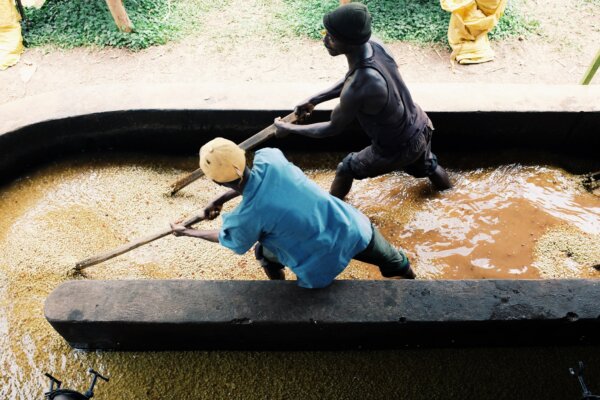 Pierre Nzeyimana and PROCASTA Nkanda Washing Station have partnered with Jake since 2017, when he set out to meet producers who were producing amazing quality in underserved areas of Burundi but lacked a consistent invested partner to bring their coffees to the specialty market. We’re now able to help continue building that bridge, adding our own QC, financing, logistics, and market access.
Pierre Nzeyimana and PROCASTA Nkanda Washing Station have partnered with Jake since 2017, when he set out to meet producers who were producing amazing quality in underserved areas of Burundi but lacked a consistent invested partner to bring their coffees to the specialty market. We’re now able to help continue building that bridge, adding our own QC, financing, logistics, and market access.
The Ngozi province hasn’t been the primary target for most coffee buyers in Burundi—Kayanza, which is more densely populated with producers, gets most of the love. Historically, Ngozi coffees have often been marketed as quantity-first blender cups, with many failing to appreciate its unique, eloquent profile. Ngozi’s hard, rocky, laterite soil (as opposed to Kayanza’s rich, sandy, red clay soil), combined with careful planting, tending, harvest, and processing, yields dense coffees that take heat beautifully in the roaster and showcase a bigger profile with juicy body and heaviness with cola and cocoa sweetness, stone fruit complexity, and citric acidity—more like Kenyan coffees. Kayanza washed coffees are gorgeous too, but they tend to be more delicate and tropical.
These classic, distinct washed coffees are separated by hill and community (typically extended multigenerational families), honoring the microclimates within their reach. Most hills average around 100 trees, up to one to two thousand maximum at the upper limit, as opposed to the 38,000 we see in BSS. Nyankurazo, Cumba, Maramvya, Kamira, and homebase Nkanda are the core communities that contribute cherry. Pierre and his three adult sons run the washing station, managing various parts of the process.
Compared to the progressive, forward-driving tone of BSS’s operation or Ephrem’s education-focused station, PROCASTA Nkanda is more rugged, old-school, and self-sufficient—much like Pierre himself, who is no-frills and focused on simply getting the job done properly. That ethos has been ideal for taking Ngozi’s potential to the next level.
Terrain-wise, Ngozi is more arid with a dry, rocky landscape, especially when driving deep into its rough roads. It’s heavily laden with eucalyptus, and small but densely populated.
What They Have in Common
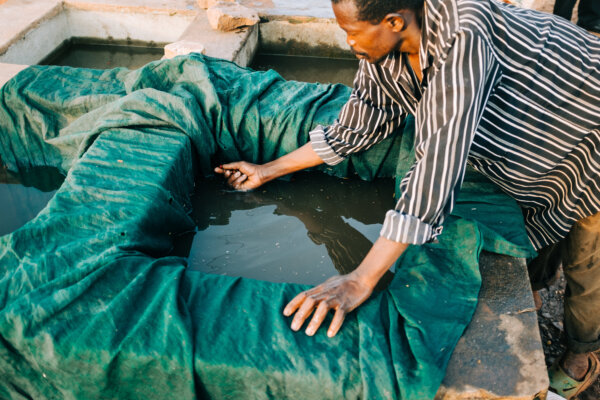 In all of these partnerships, producers are aided by communal leadership and peer mentorship. Each involves close communities of extended families who prize wisdom and experience as well as youthful enthusiasm, and who like to see their coffees valued equally as representing each community member’s equal value. That’s why we don’t have producer separations despite comprehensive traceability.
In all of these partnerships, producers are aided by communal leadership and peer mentorship. Each involves close communities of extended families who prize wisdom and experience as well as youthful enthusiasm, and who like to see their coffees valued equally as representing each community member’s equal value. That’s why we don’t have producer separations despite comprehensive traceability.
All of these coffees are superb. We are so glad to be bringing them in and excited to taste your roasts of them.
Interested in sourcing coffee with us? Reach out at info@redfoxcoffeemerchants.com. To learn more about our work, check out our journal and follow us on Instagram @redfoxcoffeemerchants.
